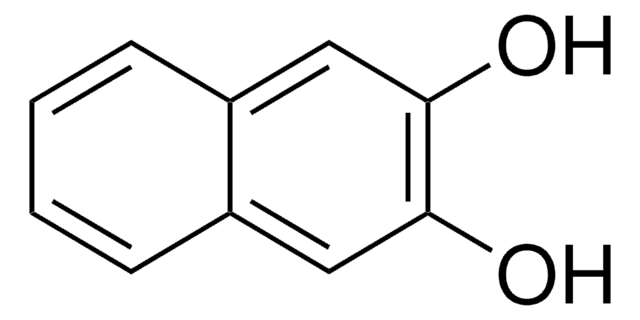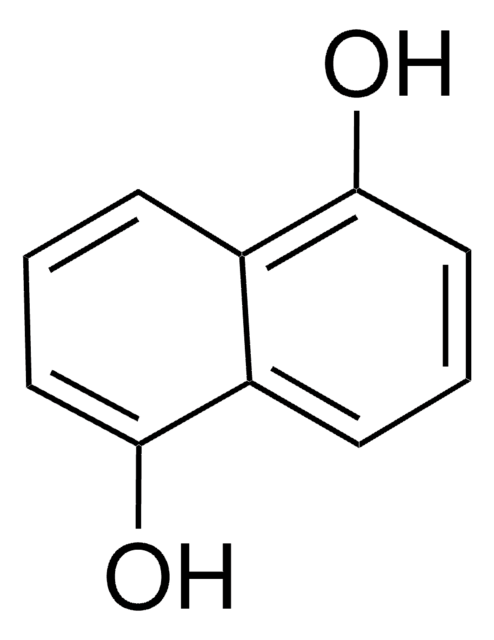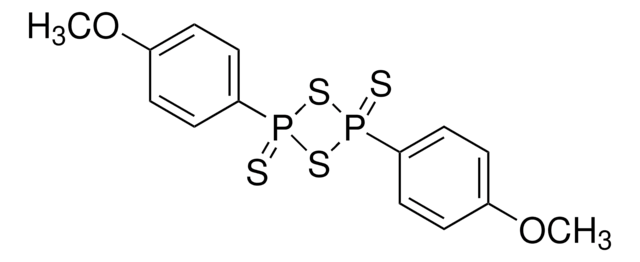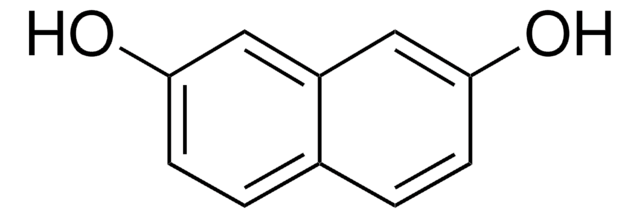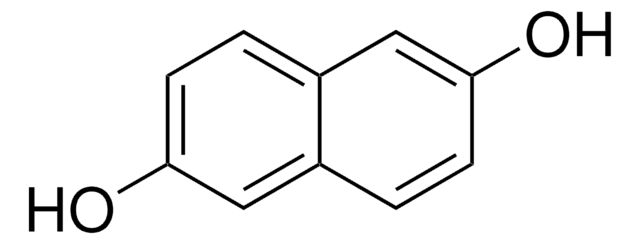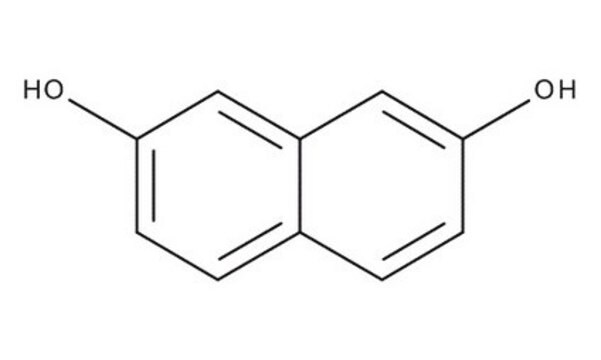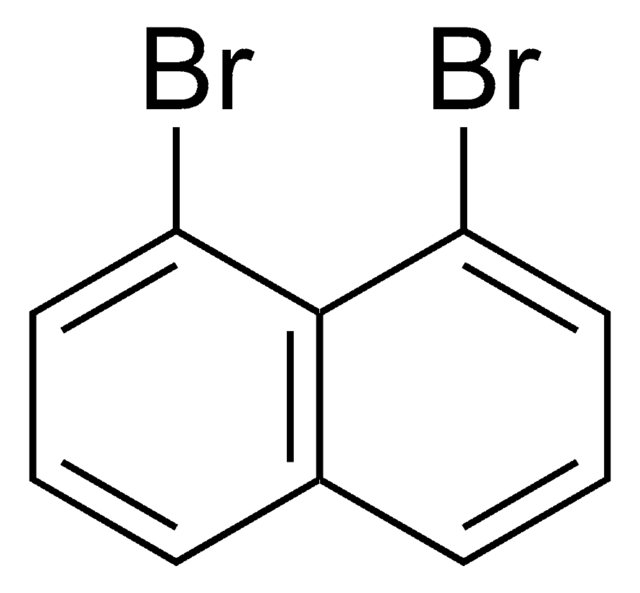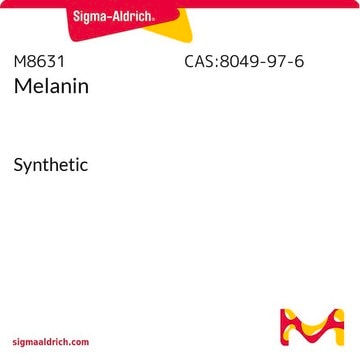740683
1,8-Dihydroxynaphthalene
95%
Synonym(s):
1,8-Naphthalenediol
Sign Into View Organizational & Contract Pricing
All Photos(1)
About This Item
Empirical Formula (Hill Notation):
C10H8O2
CAS Number:
Molecular Weight:
160.17
Beilstein:
2044947
MDL number:
UNSPSC Code:
12352100
PubChem Substance ID:
NACRES:
NA.22
Recommended Products
Assay
95%
form
solid
mp
137-143 °C
storage temp.
2-8°C
SMILES string
Oc1cccc2cccc(O)c12
InChI
1S/C10H8O2/c11-8-5-1-3-7-4-2-6-9(12)10(7)8/h1-6,11-12H
InChI key
OENHRRVNRZBNNS-UHFFFAOYSA-N
Looking for similar products? Visit Product Comparison Guide
Application
1,8-Dihydroxynaphthalene (DHN) can be used as:
- An intermediate in the preparation of benzo analogs of spiromamakone A.
- A starting material to synthesize naphthopyran derivatives.
- An intermediate in the total synthesis of palmarumycin CP17 analogs.
Signal Word
Danger
Hazard Statements
Precautionary Statements
Hazard Classifications
Eye Dam. 1
Storage Class Code
11 - Combustible Solids
WGK
WGK 3
Flash Point(F)
Not applicable
Flash Point(C)
Not applicable
Certificates of Analysis (COA)
Search for Certificates of Analysis (COA) by entering the products Lot/Batch Number. Lot and Batch Numbers can be found on a product’s label following the words ‘Lot’ or ‘Batch’.
Already Own This Product?
Find documentation for the products that you have recently purchased in the Document Library.
Customers Also Viewed
N A Yurlova et al.
Studies in mycology, 61, 39-49 (2008-01-01)
Dothideaceous black yeast-like fungi (BYF) are known to synthesise DHN-melanin that is inhibited by the systemic fungicide tricyclazole. The final step of the DHN melanin pathway is the conjoining of 1,8-DHN molecules to form the melanin polymer. There are several
Synthesis of spiromamakone a benzo analogues via double oxa-michael addition of 1, 8-dihydroxynaphthalene
Tsukamoto H, et al.
Organic Letters, 18, 4848-4851 (2016)
Bo Wang et al.
BMC genomics, 18(1), 729-729 (2017-09-17)
Ectophytic fungi occupy the waxy plant surface, an extreme environment characterized by prolonged desiccation, nutrient limitation, and exposure to solar radiation. The nature of mechanisms that facilitate adaptation to this environment remains unclear. In this study, we sequenced the complete
R Romero-Martinez et al.
Infection and immunity, 68(6), 3696-3703 (2000-05-19)
Sporothrix schenckii is a human pathogen that causes sporotrichosis, an important cutaneous mycosis with a worldwide distribution. It produces dark-brown conidia, which infect the host. We found that S. schenckii synthesizes melanin via the 1,8-dihydroxynaphthalene pentaketide pathway. Melanin biosynthesis in
H F Tsai et al.
Journal of bacteriology, 180(12), 3031-3038 (1998-06-11)
Aspergillus fumigatus, an important opportunistic pathogen which commonly affects neutropenic patients, produces conidia with a bluish-green color. We identified a gene, alb1, which is required for conidial pigmentation. The alb1 gene encodes a putative polyketide synthase, and disruption of alb1
Our team of scientists has experience in all areas of research including Life Science, Material Science, Chemical Synthesis, Chromatography, Analytical and many others.
Contact Technical Service